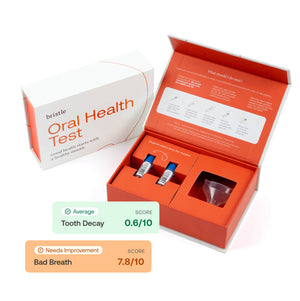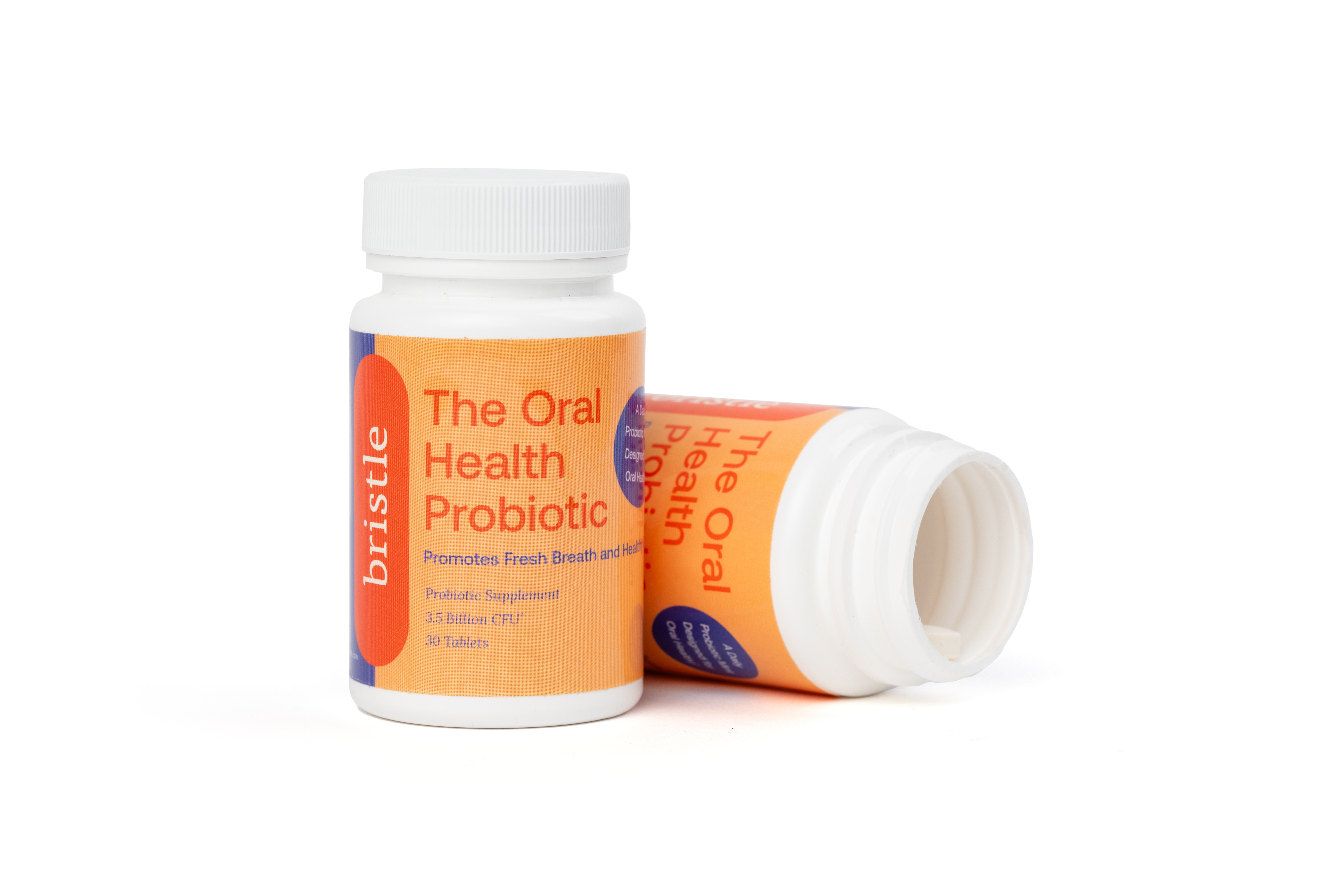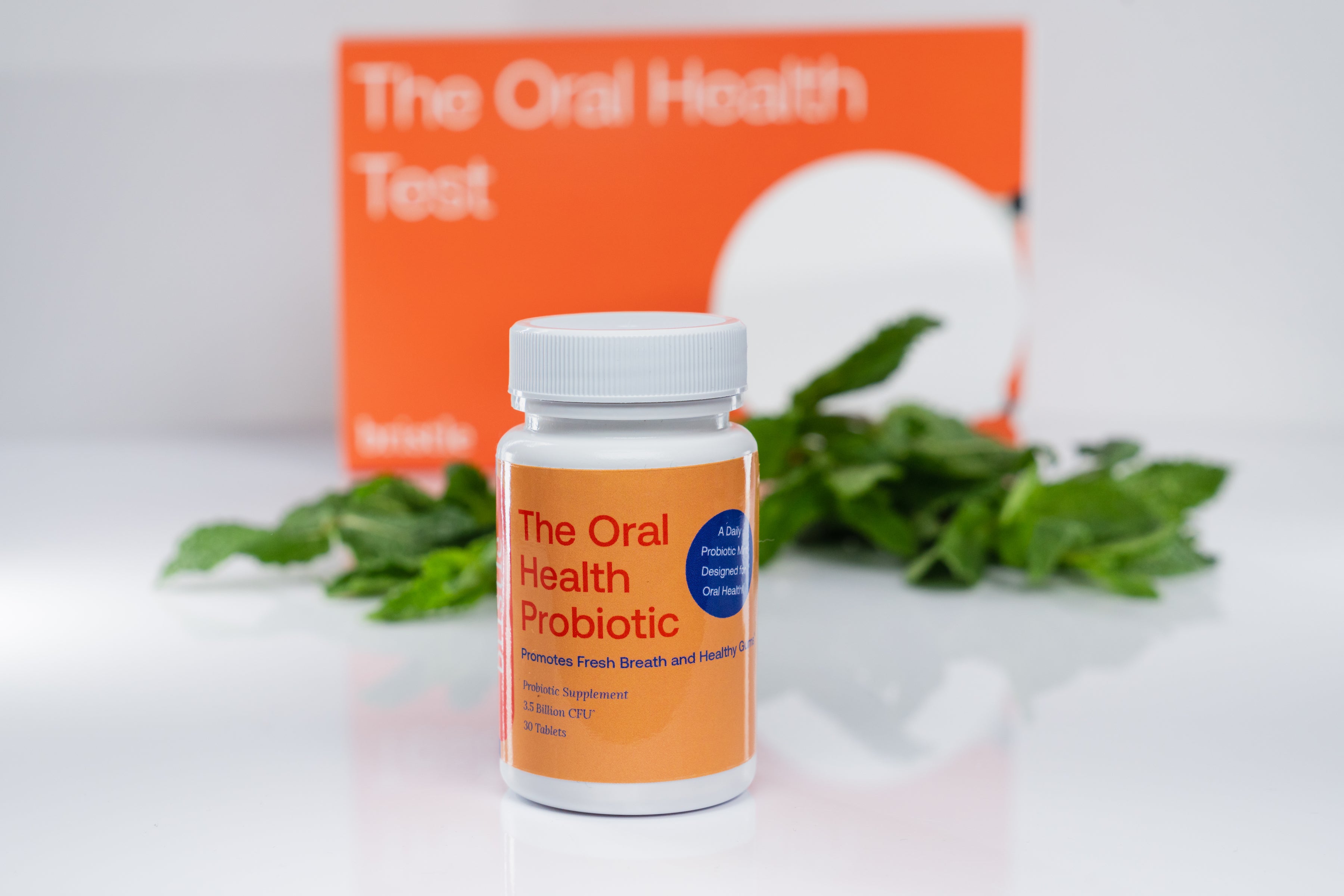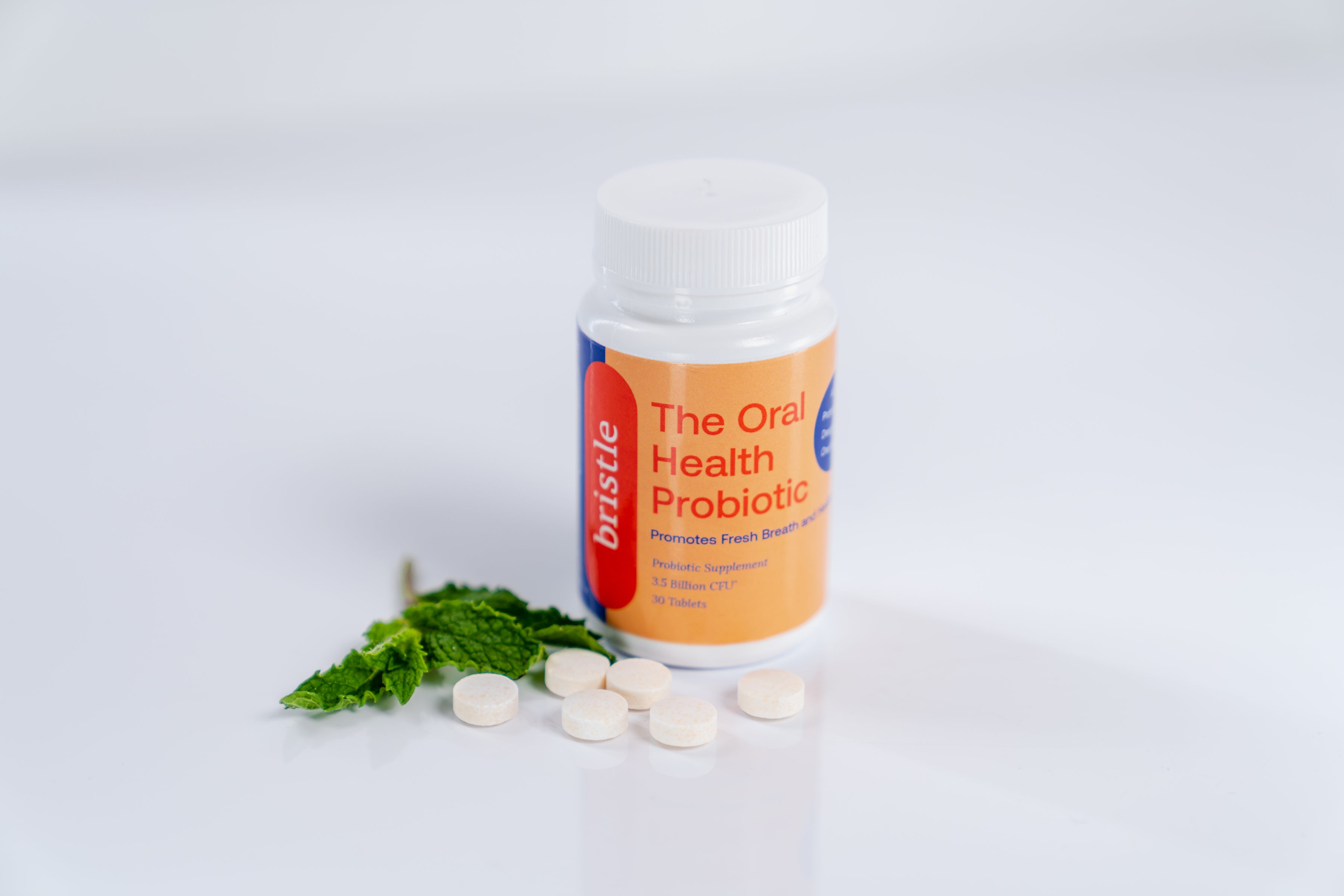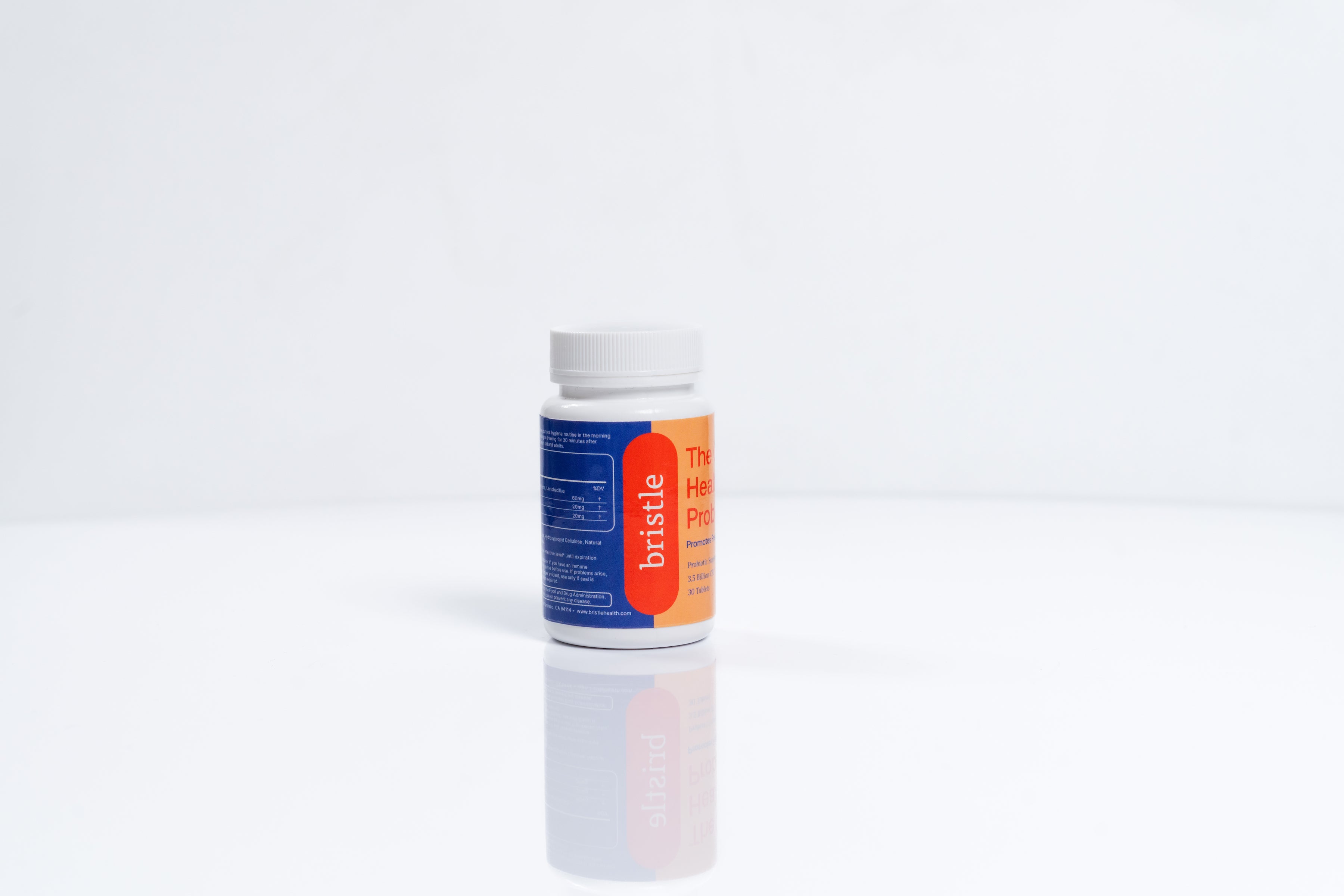Bad breath, medically known as halitosis, is a condition that can cause discomfort, frustration and even anxiety to some. According to statistics, around 50% of the global population experiences some sort of bad breath [1]. Various factors can cause halitosis—some temporary, and some long-lasting.
Short term, some strong-smelling food ingredients and drinks such as garlic, coffee, and alcohol, or spicy food can cause breath to have a bad odor. Gum diseases, tooth cavities, and poor oral hygiene can result in bad breath in the long term.
If your halitosis is due to temporary reasons, you can try using gums, mouthwashes, or dental floss. If, however, the matter doesn’t resolve with these measures, it’s time for you to further analyze the source of your bad breath.
Bad breath does not always come from the mouth.
In most of the cases, chronic halitosis (bad breath) originates from the mouth. Infections in the mouth, not properly brushing and flossing teeth, or a reduced production of saliva (dry mouth) are among the usual oral-related causes.
However, sometimes the source can be situated a little deeper than that. Certain disease conditions in the stomach can also result in an unpleasant breath. In these situations, a clear diagnosis may not be obtained at first as it can be difficult to identify the origin. In today’s post, we discuss the causes of bad breath from the stomach, their symptoms, and how you can confirm where it really comes from.
Knowing that there are different reasons for bad breath—other than the mouth itself— will help you determine if you might be dealing with something deeper that warrants treatment.
What causes bad breath from the stomach?
Bad breath can arise due to several causes related to your digestive tract. In most cases, this smell is described as rotten-egg-like or fishy. This is mostly due to various volatile sulfur compounds such as sulfur dioxide or methyl mercaptan which are produced by certain intestinal bacteria. In some situations, undigested food particles that come up from the stomach can also contribute to the smell.
Here we describe 3 common conditions that can produce foul breath from the stomach along with their symptoms.
Helicobacter pylori (H. pylori) infections
Studies have proven that Helicobacter pylori, a common bacterium associated with stomach ulcers, can cause halitosis [2]. While Helicobacter pylori is a usual member of the gut microbiota, it can cause gastrointestinal issues when its numbers get out of balance.
One study reported high levels of hydrogen sulfide and dimethyl sulfide gases in the mouth air of patients with H. pylori infections [3]. These volatile sulfur compounds can produce smells that resemble rotten eggs or cabbage. In a separate study, it was that found halitosis symptoms were removed when they treat H. pylori-infected patients with antibiotics to cure the infection [4].
Common symptoms of H. pylori infections include [5]:
- Gastric or abdominal pain
- Nausea
- Appetite loss
- Bloating
- Unintended weight loss
If you find you have halitosis along with these symptoms, it’s a good idea to get yourself checked for H. pylori.
Gastroesophageal reflux disease (GERD)
Gastroesophageal reflux disease (GERD), also known as chronic acid reflux, is a severe disorder in which acid-containing contents of the stomach frequently come up into the esophagus. This can damage the lining of your esophagus and on some occasions, it can result in a malodorous breath [6]. There can be various triggers for GERD such as overeating, smoking, and alcohol consumption.
In the case of GERD, stomach acid containing half-digested food particles can cause bad breath and the smell can be more of a sour, acid-like odor. In the long term, this acidity can erode the tooth enamel, resulting in tooth cavities that can trap food particles and this can worsen halitosis.
Frequent symptoms of GERD can include [7]:
- Heartburn
- Chest pain
- Difficulty swallowing
- Irritation of the throat
These symptoms, along with an unpleasant breath can signal that you might have GERD and it will be best if you meet a gastroenterologist.
Small intestinal bacterial overgrowth (SIBO)
Small intestine bacterial overgrowth, as the name implies, indicates an overgrowth of bacteria in the small intestine. SIBO mainly results after surgery or a disease that blocks the movement of food through the digestive tract. This slows down the food passing through the intestines and creates an ideal environment for bacterial growth. Sometimes, these bacteria can produce odorous compounds and cause bad breath [8].
Most of the time, halitosis occurs when Hydrogen sulfide-producing bacteria dominate the SIBO populations and the breath can smell like rotten eggs.
Other most common symptoms of Hydrogen-sulfide SIBO include [8]:
- Fatigue
- Headaches
- Body pain
- Sleep issues
- Loss of appetite
If you believe you’re suffering from SIBO which in turn causes breath malodor, please consider consulting a gastroenterologist.
How to treat bad breath from the stomach?
When you have bad breath that arises from the stomach, the first step should be to correctly identify the cause. The treatment plans will differ according to the underlying condition. For instance, in the case of H. pylori infection, it can be controlled by eliminating the infection using antibiotics, while in the case of GERD or a medical condition, your doctor may prescribe antacids or H2 blockers (a medication that lowers the amount of acid produced in the stomach.). If your bad breath is due to Small intestine Bacterial Overgrowth, it will be treated with antibiotics and probiotics.
Changing your lifestyle and eliminating certain bad habits such as smoking can also help in resolving these issues. Altering your diet, in particular, can provide relief from many of these gut-associated problems.
In order to get an accurate diagnosis, you will need to consult a gastroenterologist who will then conduct relevant examinations according to your symptoms. You might first consider seeing a dentist or taking a home oral microbiome test (which we will discuss later in the article) to make sure that your unpleasant breath is not due to an oral concern.
Are you sure it’s from the stomach?
While there’s a possibility that your bad breath is coming from the stomach, it is a good idea to make sure that it’s not coming from your mouth. After all, it’s a known fact that around 90% of halitosis cases originate from the oral cavity [9]. Most of the time it’s due to the overgrowth of unfriendly bacteria in the mouth resulting from poor oral hygiene and gum disease.
It can also arise from your throat if you have conditions such as tonsil stones or throat infections.
Take a home oral microbiome test to make sure that it doesn’t come from the mouth.
Testing your oral microbiome can create a clear picture of the microbial composition in your mouth and identify if there are any reasons for bad breath - then give you specific recommendations for your dental hygiene routine to address it. It’s as simple as collecting a sample of saliva and running it through the test kit. If in case your oral microbiome test results come up negative for an oral cause of halitosis, you can then focus on getting treated for other issues such as stomach-related conditions.
References:
[1] “Halitosis - StatPearls - NCBI Bookshelf.” https://www.ncbi.nlm.nih.gov/books/NBK534859/
[2] “Halitosis and helicobacter pylori infection - PMC.” https://www.ncbi.nlm.nih.gov/pmc/articles/PMC5265885/
[3] “Gastrointestinal diseases and halitosis: association of gastric Helicobacter pylori infection - PubMed.” https://pubmed.ncbi.nlm.nih.gov/12090454/
[4] “Eradication therapy in Helicobacter pylori-positive patients with halitosis: long-term outcome - PubMed.” https://pubmed.ncbi.nlm.nih.gov/17303947/
[5] “Helicobacter pylori (H. pylori) infection - Symptoms and causes - Mayo Clinic.” https://www.mayoclinic.org/diseases-conditions/h-pylori/symptoms-causes/syc-20356171
[6] “Gastroesophageal reflux, dental erosion, and halitosis in ep... : European Journal of Gastroenterology & Hepatology.” https://journals.lww.com/eurojgh/Abstract/2013/02000/Gastroesophageal_reflux,_dental_erosion,_and.2.aspx
[7] “Gastroesophageal reflux disease (GERD) - Symptoms and causes - Mayo Clinic.” https://www.mayoclinic.org/diseases-conditions/gerd/symptoms-causes/syc-20361940
[8] “Nutrients | Free Full-Text | Small Intestinal Bacterial Overgrowth and Non-Alcoholic Fatty Liver Disease: What Do We Know in 2023?” https://www.mdpi.com/2072-6643/15/6/1323
[9] “Halitosis: From diagnosis to management - PMC.” https://www.ncbi.nlm.nih.gov/pmc/articles/PMC3633265/

